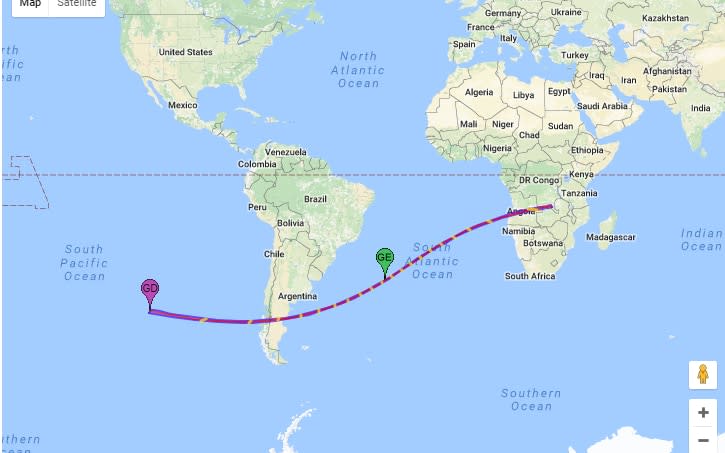When is the next solar eclipse and can I see Sunday's 'ring of fire' in the UK?
What is a solar eclipse?
A solar eclipse happens when the moon casts a shadow on the earth as it passes between the earth and the sun, blocking out the light.
The diameter of the Sun is 400 times that of the moon but it lies 400 times further away - which means if you are in exactly the right alignment on the surface of the Earth at the right time, you will see the two celestial bodies overlap.
There are three types of eclipse.
A total eclipse happens when the moon completely covers the Sun, and this can only be seen from a limited area. They are very rare and most people see just one in their lifetime.
A partial solar eclipse happens when the moon only partially covers the Sun, while an annular eclipse occurs when the moon appears smaller than the Sun as it passes across it, leaving just a ring sunlight, or "ring of fire".
When is the solar eclipse in February 2017?
The next solar eclipse takes place on Sunday, February 26. It's an annular eclipse, and will start at 12.10pm UTC, peaking at 2.58pm UTC.
It's the first of two solar eclipses taking place in 2017. The next one will be a total eclipse on Monday, August 21, but that will only be seen over the US.
Serra Cafema is right in the hot zone of this w/end's full #solareclipse! https://t.co/dOk6wejRPn#Namibia#Kunenepic.twitter.com/G6m5Ijvhzj
— Wilderness Safaris (@WeAreWilderness) February 24, 2017
Can I see it in the UK?
Afraid not. This one will only be visible in parts of South America, the South Atlantic Ocean and in parts of Africa, including Zambia and Angola.
The last solar eclipse that was visible in the UK occurred in 2015.
When is the next solar eclipse in the UK?
The next significant solar eclipse that will be visible in the UK won't take place until August 12, 2026. On that date up to 95 per cent of the Sun will be obscured.
Britain will not see a total solar eclipse until September 23, 2090.
The worlds best stargazing locations
How to watch a solar eclipse safely
The most important message is never to look directly at the Sun, even through sunglasses or dark material such as a bin liner or photographic negative.
Makeshift filters may not screen out the harmful infrared radiation that can burn the retina of the eye.
Wear special eclipse viewing glasses - not ordinary sunglasses - or construct a simple pinhole camera which projects an image of the Sun onto a blank piece of paper.

 Yahoo News
Yahoo News 

